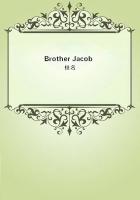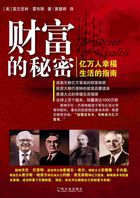In the ancient laws of Ireland the whole tribe has "live chattels" and "dead chattels," as well as common lands. Among the Eskimos of Greenland, according to Dr Rink's account of their ancient usages, a house was the joint property of several families; a tent, a boat, and a stock of household utensils and articles for barter were owned in common by one or more families;the flesh and blubber of captured seals belonged to a whole hamlet, while larger animals such as whales were shared among the inhabitants of neighbouring hamlets; and custom strictly limited the quantity of clothes, weapons, tools, and other articles of personal use, that a single individual could keep to himself. "If a man had anything to spare it was ranked among the goods possessed in common with others." Among the Nootkas of North America, we are told by Mr Bancroft, though food is not regarded as common property, "any man may help himself to his neighbour's store when needy." Sir Henry Maine and M. de Laveleye have shewn that a joint table, with meals partaken in common by several families, is an archaic usage once prevalent throughout Europe and not extinct at this day among the Southern Slavs; and M. de Laveleye, with great probability, traces to it the common repasts in ancient Greece which historians have been accustomed to ascribe to the policy of legislators. Again, down at least to the fourteenth century, groups of English peasants, sometimes a whole village, had chattels such as horses, oxen, ploughs, boats, in common; a joint proprietorship which to the modern eye may look at first like a species of co-operation for convenience, but which it is more in conformity with the ideas and practices of early society to regard as a survival of the co-ownership of movables by kinsmen settled together, as we know the inhabitants of English villages in many cases originally were. Another fact pointing in the same direction is that in ancient Germany the compensation in cattle for a homicide or outrage went to the kindred, and the eric-fine of Irish law went partly to the whole sept, and partly to the chief as its head. Much evidence collected by recent inquiries into the usages of uncivilized communities at the present day, seems to lead us back to a stage of human development at which women not only were considered as chattels, but were themselves owned as such in common by clans, septs, or smaller groups of kinsmen; and the ancient Irish laws contain indications to the same effect. The honour price of an abducted woman was paid according to the Book of Aicill, in part to her chief and her relatives; and her children belonged to her family, who might sell them or not as they pleased. The infrequency of exchanges, the absence of coin and other divisible currency for small individual purchases, the use of cattle and slaves in the earlier stages of society, as a medium of payment, point in like manner to the absence of individual property in chattels. Commercial transactions took place between groups, or at least whole families, not between individuals. We may find here, I venture to suggest, the true explanation, though Mommsen gives a different one, referred to by M. de Laveleye, of the distinction, so long maintained in Roman law, between Res Mancipi , requiring a solemn ceremonial for their transfer, and those later or less important kinds of property called Res nec Mancipi , which were transferable by simple delivery. Res Mancipi included slaves, horses, asses, mules, oxen, lands in Italy, but not coin, jewels, lands beyond Italy, and many other possessions, either entirely unknown to the primitive Romans, or not deemed of such importance as to require the forms of Mancipatio for their transfer. The original distinction, I apprehend, lay between things that were common property, and things that were allowed to belong to individuals.
A limited stock of certain things for personal use was early permitted, and accordingly weapons, food, and other articles for his journey to another world, were placed in the warrior's grave, though it is a curious inquiry whether similar provision was made for a woman on her departure. This explanation of the formalities accompanying the transfer of Res Mancipi is quite in harmony with Sir H. Maine's exposition of the solemnities accompanying the commercial transactions of primitive associations. "As the contracts and conveyances known to ancient law are contracts and conveyances to which not single individuals, but organized companies of men are parties, they are in the highest degree ceremonious; they require a variety of symbolical acts and words intended to impress the business on the memory of all who take part in it, and they demand the presence of an inordinate number of witnesses." (1)No mere psychological explanation of the origin of property is, I venture to affirm, admissible, though writers of great authority have attempted to discover its germs by that process in the lower animals. A dog, it has been said, shews an elementary proprietary sentiment when he hides a bone, or keeps watch over his master's goods. But property has not its root in the love of possession. All living beings like and desire certain things, and if nature has armed them with any weapons are prone to use them in order to get and keep what they want. What requires explanation is not the want or desire of certain things on the part of individuals, but the fact that other individuals, with similar wants and desires, should leave them in undisturbed possession, or allot to them a share, of such things.















